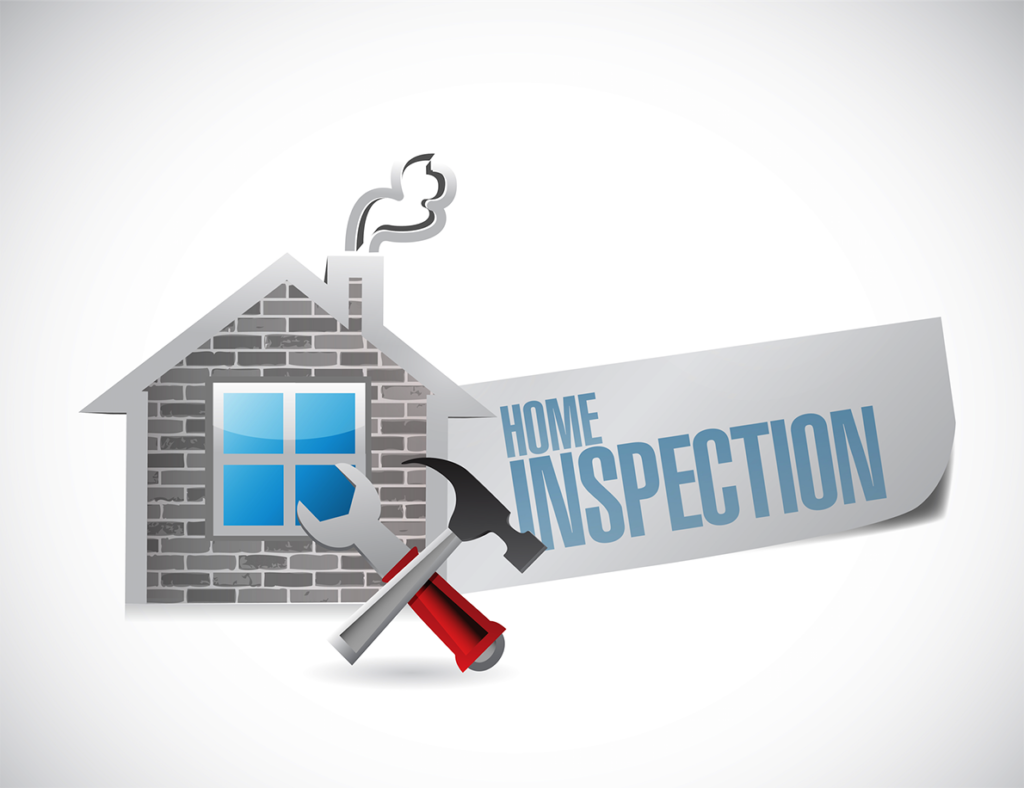Questions to Ask – Home Inspection Guide
Chances are, your home is the largest purchase you will ever make. Because of the size of the investment, it is best practice to have a certified home inspector come and go through your potential home with a fine-toothed comb and give you the low down on any hidden quirks or repairs that need to be made
When meeting with your home inspector once they are finished, these seven questions will help you understand the vast amounts of information they will give you and guide you through the re-negotiation or purchase process.
May I see your license?
This may seem like an unusual question to ask, but trusting such a large decision to anything less than a home inspection performed by someone who is licensed is foolish. Before hiring an inspector, ask to see their licensure.
Which parts of my home does the inspection cover?
Before you schedule a home inspection, review the areas of the home your inspector will be covering. Less than half the states in the US have specific guidelines about what is covered during a home inspection, therefore which areas to be inspected should be agreed upon before hiring an inspector. Keep in mind, the average home inspection should take between three and four hours, longer for an older, larger home. Anyone spending less time than this may not be as thorough as you would have hoped.
What is the process to fix that?
While inspectors are not licensed contractors, they can give you an idea of what the process is to fix most problems. Such explanations will give you the chance to decide whether to tackle the repair yourself, renegotiate the purchase terms, or build the repairs into after-purchase costs.
If you were buying this house, which repairs would you tackle first?
Your home inspector’s expert eye will be able to prioritize any repairs that are necessary before purchasing the home over those that can wait until a later time. Not only does this give your home inspector an opportunity to help you understand what does and does not need to be repaired, it gives you a chance to budget appropriately for repairs or maintaining home warranty coverage.

Final Home Inspection Tips
You’re nearing the final stretch of selling your home solo. It’s been an exciting and demanding journey, you’ve found a buyer, negotiated a price and you’re ready to close. But first, there’s the final walk-through.
you’re almost sure to have a final home inspection carried out before closing. Had you gone the traditional route, the buyer’s agent would normally be responsible for the final walk-through with the inspector.
When to schedule the final home inspection
The best time for a FSBO final property walk-through will depend on a few things, but your goal should be as close to the actual closing as possible. If the closing is scheduled to take place at 1:00 pm on Monday, try scheduling the final home inspection for 9:00 that morning. If your closing is in the morning, schedule the walk through the afternoon or evening before closing. Touch base with the seller a few days in advance to determine a time that works for both of you.
Seller’s rights at final home inspection
The final home inspection before closing is not an invitation for the buyer to start re-negotiating the sale price. That window was closed once the buyer signed a contract. Their chance of negotiating any further is over.
Caveat emptor (let the buyer beware)
Don’t be surprised if, during the final home inspection, the buyer begins to notice flaws he or she hadn’t seen before and attempts to reopen negotiations. The trouble is, it’s too late for that. Do not feel compelled to discuss the price of repairs or lowering the price of the home. The buyer had plenty of time before today to take care of these issues and request you pay for repairs or lower the home’s price.

Home Inspections
Home Inspections are an integral part of nearly every residential real estate transaction and knowing what to expect and how to deal with the results, from both the buying and selling side, can mean the difference between having a great experience and a frustrating (and potentially expensive) one.
there are licensing standards in many areas and even in unlicensed areas, there are several trade groups that do a great job of establishing minimum standards, but these standards fall short of truly protecting buyers from the unknown – these standards are really meant to reduce an inspector’s liability and that is not what you want as a home buyer. With that being said, there’s only one certification in the industry that requires inspectors to provide a 100% satisfaction guarantee, an inspection that goes beyond minimum standards providing true protection for buyers and sellers alike, and quality service that is continuously monitored by a third party; that would be the Certified Inspection Expert.
For example, if you move in and discover that a pipe is leaking under a sink, what do you do? This guide will show you how to get that repair done for free – just by choosing the right home inspector. In fact, this website will explain how to be covered against literally hundreds of potential failures at no cost to you – giving buyers true peace of mind while in many regards reducing liability for a seller as well – and it is something that is offered by the leading home inspection companies
You’ll also find a list of things inspectors should be checking and a list of questions to ask an inspector before you hire them. While price is always a consideration in anything you do, pricing variation in home inspections is rarely substantial.
Hiring a Home Inspector
Buying a home can be one of the most important financial investments you will ever make. But, how do you know if the house is everything it appears to be? If your new home has hidden structural issues and needs major repairs, you may be buying into a money pit and sleepless nights. A home inspection is one of the smartest ways to educate yourself about the physical condition of a property before you buy.
What’s a Home Inspection?
A home inspection is a visual inspection of the physical structure and mechanical condition of a home – from roof to foundation. The inspection is designed to identify problems, advise of repairs needed and, in some cases, provide preventive maintenance advice. A home inspection points out the positive aspects of a home, as well as the maintenance that will be necessary to keep it in good shape.
Tips for Hiring a Home Inspector
Pick a home inspector who has experience, positive references, and is known for being very comprehensive. While this may cost more upfront, hiring a great inspector will save you money in the long run. If you don’t get a complete, accurate inspection, you may miss major problems and your chance to negotiate repairs with the seller.
Ask friends and acquaintances for recommendations. Ask for and experienced home inspector who is known for being very thorough.
Find someone familiar with your type of home and the issues you need to inspect. Be sure your inspector specializes in homes, not commercial properties, and any issues you anticipate finding. For example, if you’re concerned about a home’s structure, consider hiring a professional engineer or architect who also does general home inspections. Also, be sure your agreement with the inspector covers the systems you most need to have examined.
Ask prospective inspectors questions about their professional training, relevant experience and/or length of time in business.
Make sure your home inspector is working in your best interests. For example, many home inpectors rely on referrals from real estate agents for their business. This means that the inspector may be more interested in maintaining that relationship than providing you a thorough inspection. They may be less inclined to identify major repair issues that hold up the sale of your home. Also, be cautious about hiring a home inspector who is looking to get contracting work from you.
Be present during the inspection. The majority of inspectors will allow you to tour the home with them and ask questions during or after the inspection. The inspection can last anywhere from two to five hours, depending on the size of the house.
Ask how soon after the inspection will you receive a copy of the home inspection final written report. Carefully read your home inspection report and make a list of items that need correction. Understand that the home inspection report records the condition of the home, both positives and negatives. This will help you to determine your future expenditures for repairs and maintenance. The report will contain useful information that serves as a reference for you in the future.
The Complete Guide to Home Inspection
Thorough enough for professionals…accessible enough for homeowners! Written in plain language suitable even for first-time home buyers, it is invaluable for home buyers, home sellers, professional home inspectors, and every homeowner who wants to understand what their house is telling them.
Truly comprehensive in scope. This is the most extensive examination of home inspection available, covering all areas of the home from top to bottom, including:
Exteriors
Roofs
Attics
Foundations, basements, and crawlspaces
Plumbing
Electrical systems
Heating and cooling
Kitchen, baths, and laundries
Garages, attached structures, and many other areas
the authors are on a highly focused mission to:
Determine your home’s hidden trouble spots and how to remedy them
Provide sound advice on avoiding hazardous materials
Offer helpful tips for improving energy efficiency, and much more.
Put an end to the mysterious problems that can create a “Money Pit.” Head off potential problems as you learn to understand a home’s systems. Includes enormously helpful resources:
Checklists – for properly inspecting a home
Retrofit tips – to quickly resolve problems and issues